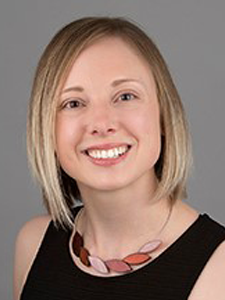Breast Cancer – Early Detection is Key
Most Women can Survive Breast Cancer when Caught Early
featuring Kristen Wolfe, MD
Obstetrics & Gynecology
Boulder Medical Center
October is Breast Cancer Awareness Month, an annual campaign to increase awareness of the disease. Perhaps you’ve heard these statistics:
- Breast cancer is the second most common kind of cancer in women
- About 1 in 8 women born today in the United States will get breast cancer at some point
The good news is that most women can survive breast cancer if it’s found and treated early. Breast cancer screening can lead to early detection and is important in managing and curing this disease.
About Breast Cancer Risk
“What’s my risk of breast cancer?” is a question many women ask their doctors. Doctors have tools to help estimate your personal risk. Some women who get breast cancer have no known risk factors besides age. Many women with one or more risk factors never get breast cancer. So it’s impossible to know who will actually get breast cancer.
According to Dr. Kristen Wolfe, Boulder Medical Center OB-GYN specialist, factors that affect a woman’s risk of breast cancer include: age (risk goes up as a woman gets older — most women who get breast cancer are older than 50), personal history of breast cancer, family history, body weight, drinking alcohol, and more.
Mammograms and Clinical Breast Exams – What’s the Difference?
Breast cancer screenings look for signs of cancer before a woman has symptoms. A screening can help find breast cancer early, when the chance of successful treatment is best. Two tests are commonly used to screen for breast cancer:
- Mammogram. A low-dose x-ray exam of the breasts to look for changes that are not normal.
- Clinical Breast Exam (CBE). Your doctor looks at and feels the breasts and under the arms for lumps or anything else that seems unusual.
Dr. Wolfe recommends these screenings for women with average risk:
- Clinical Breast Exams by your doctor should start at age 25 and continue every one to three years
- A Clinical breast exam should be performed yearly after age 40
- Mammograms should start at age 40 and continue every one to two years until at least age 75
“In addition to breast cancer screenings, it is important to be familiar with the normal feel and appearance of your breasts,” says Dr. Wolfe. “Let your doctor know if something changes or seems out of the ordinary.”
Additional Screening Options
Dr. Wolfe also suggests that women talk to their doctor about additional screening tests if they have a higher risk for breast cancer. Additional screenings may include:
- Ultrasound Exam – Sound waves help your doctor see if a lump is solid (could be cancer) or filled with fluid (a fluid-filled sac that is not cancer).
- Magnetic Resonance Imaging (MRI) – Radio waves and a powerful magnet linked to a computer are used to create detailed pictures of areas inside the breast. MRI may be used if enlarged lymph nodes or lumps are found during a clinical breast exam that are not seen on a mammogram or ultrasound.
She also warns that breast thermography is considered experimental and at this time does not safely replace or alter any of the above recommendations.
Breast Cancer Resources
The Obstetrics & Gynecology Department
at Boulder Medical Center
For all of life’s stages, Boulder Medical Center’s trusted women’s health team is here for you. From family planning and childbirth through menopause and beyond, our doctors, midwife and other caring professionals are committed to supporting your best health every step of the way.


